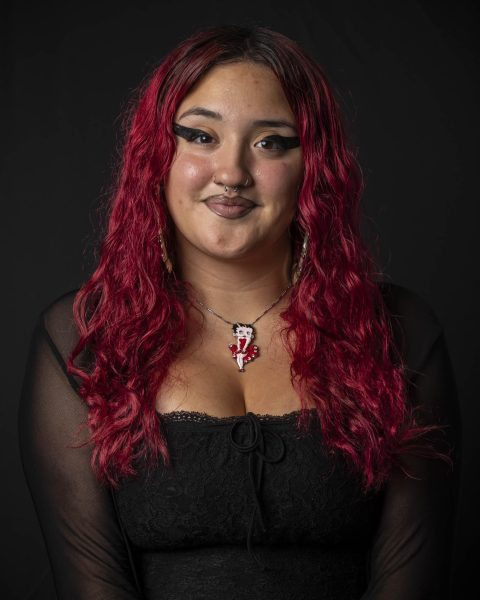Columbia’s Board of Trustees is meeting on Monday, May 20 to vote on President and CEO Kwang-Wu Kim’s recommendations for dealing with the financial crisis.
The board had been expected to vote on May 9 ahead of commencement weekend. But that vote was delayed after the college prematurely announced that board members had approved Kim’s recommendations before a discussion or official vote.
Through a process outlined in the college’s “Statement of Policy,” the board voted unanimously in February to start the process to determine whether the college has met the conditions for “adverse circumstances,” which could lead to layoffs of full-time faculty with tenure appointments.
Kim has said that the board members aren’t from academia, so they are working in partnership with the administration to consider changes to the college.
The board has “ultimate oversight over the finances of the institution, but equally important, oversight over the colleges ability to deliver on its promise of a quality education for its students,” Kim said in an exclusive interview with the Chronicle on March 6.
The college also plans to hire a consultant firm to help restructure and address the $38 million budget deficit, though the firm it initially had tapped backed out after the name was disclosed during a Faculty Senate meeting.
Just what is the role of a Board of Trustees in a college?
Mary Papazian, executive vice president of the Association of Governing Boards of Universities and Colleges, said for the partnership between a college’s administration and the board of trustees to be effective, it’s essential for both boards and administrators to “maintain open lines of communication, respect each other’s roles and expertise, and share a commitment to the institution’s mission and success.”
Faculty at Columbia have complained that hasn’t been the case. At an AAUP membership meeting on Friday, May 17, some faculty members raised the possibility of boycotting a meeting next week with the provost’s office over concerns that their perspectives are not being considered during a restructuring that will take place.
Kim has recommended reducing the core requirements and changing the school’s administrative structure by eliminating four schools and replacing them with eight creative entities headed by directors.
The job of a higher education board encompasses a broad range of activities aimed at ensuring the institution’s well-being and success. Their responsibilities include institutional governance, fiduciary oversight, presidential selection and evaluation, advocacy and representation and a commitment to the institution.
“Boards of trustees play a pivotal role in the governance and stewardship of a college or university, requiring a deep commitment to the institution’s mission, strategic oversight, and a balanced approach to managing the diverse needs of internal and external stakeholders,” Papazian said.
Members of boards of trustees at colleges are often alumni of the school or serve as business leaders in the area. As of the spring semester, 10 board members are Columbia alumni. They also include philanthropists, lawyers and business leaders both in Chicago and nationwide.
Many of the trustees have multiple degrees from different universities, but many have undergraduate degrees in liberal arts.
The college is considering reducing its core liberal arts requirements from 42 to 30 credits in the fall, and most of the full-time layoffs are expected to be people who teach those courses.
Columbia’s board is headed by John M. Holmes, who is the president and CEO of AAR Corp. He has been on the board for 11 years.
In two interviews this spring with the Chronicle, Holmes has indicated he supports big changes to address the deficit and declining enrollment, saying most recently that they must be “bold” to address the looming financial crisis.
Over the past academic year, the board has brought on, or is bringing on, several new board members. He told the Chronicle in late April that four new members have been voted on by the current board.
Holmes said the new members of the board are ready to help address Columbia’s financial problems with their business and financial expertise. One of them is Peter Pace, manager and director of Goldman Sachs in Chicago and a private wealth advisor.
On Columbia’s board specifically, the work is divided into committees, including academic and financial affairs committees. The board also has two representatives – Sean Andrews, an associate professor and the associate chair to the Humanities, History, and Social Sciences Department, is the current faculty representative, and Lindy Girman serves as the student representative for the board, through the Student Government Association. Holmes said the board often breaks into “executive meetings,” which are held without the two college representatives.
Papazian said one of the biggest roles boards of trustees play in higher education collaborating for strategic decision making, helping navigate the college through challenges and opportunities and operational oversight.
“Boards of trustees have a fiduciary responsibility to oversee the institution’s financial health,” Papazian said. “This involves working with administrators to review and approve annual budgets, major financial transactions, and investment strategies. The board also monitors financial performance against budgeted expectations, ensuring resources are allocated efficiently and effectively to support the institution’s priorities.”
Columbia’s Board of Trustees has been working closely with the President’s Cabinet throughout the on-going deficit, approving the college to declare adverse circumstance, examining if the college’s core credits could be reduced to 30 from 42 and naming current Senior Vice President and CFO Jerry Tarrer to be the interim president after Kim departs in July.
Oftentimes board members do not have experience in higher education and are called in to volunteer their time to help schools from a business standpoint and aid in fundraising efforts. Board members are not paid.
In an interview with the Chronicle in February, Holmes said the changes the board is considering will be hard but are necessary for the college’s survival.
“These are changes that we’ve needed to make for a long time,” he said.
What students are saying:
Lindy Girman, who was the student representative to The Board of Trustees for the Student Government Association this past academic year, said the board makes decisions in order to manage the financial wellbeing of the institution. She added that within these decisions, the board considers all aspects of what will be affected, including the student experience.
I sat in “as a non-voting member of Columbia’s board and am able to share concerns and ideas as well as weigh in on issues with the best interests of the student body in mind,” Girman said.
Girman said being connected to “all corners of the Columbia community” through SGA helped her stay in touch with all different departments and demographics on campus and hear from our senators what their constituents care about and let the board know.
I worked “with my student organizations advisors to ensure the issues I present are representative of the Columbia experience in general and not just my own,” Girman said.
I’Ja Wright, a junior marketing major, will take over as the student representative to the Board in the fall.
Additional reporting by Patience Hurston.
Copy edited by Patience Hurston











